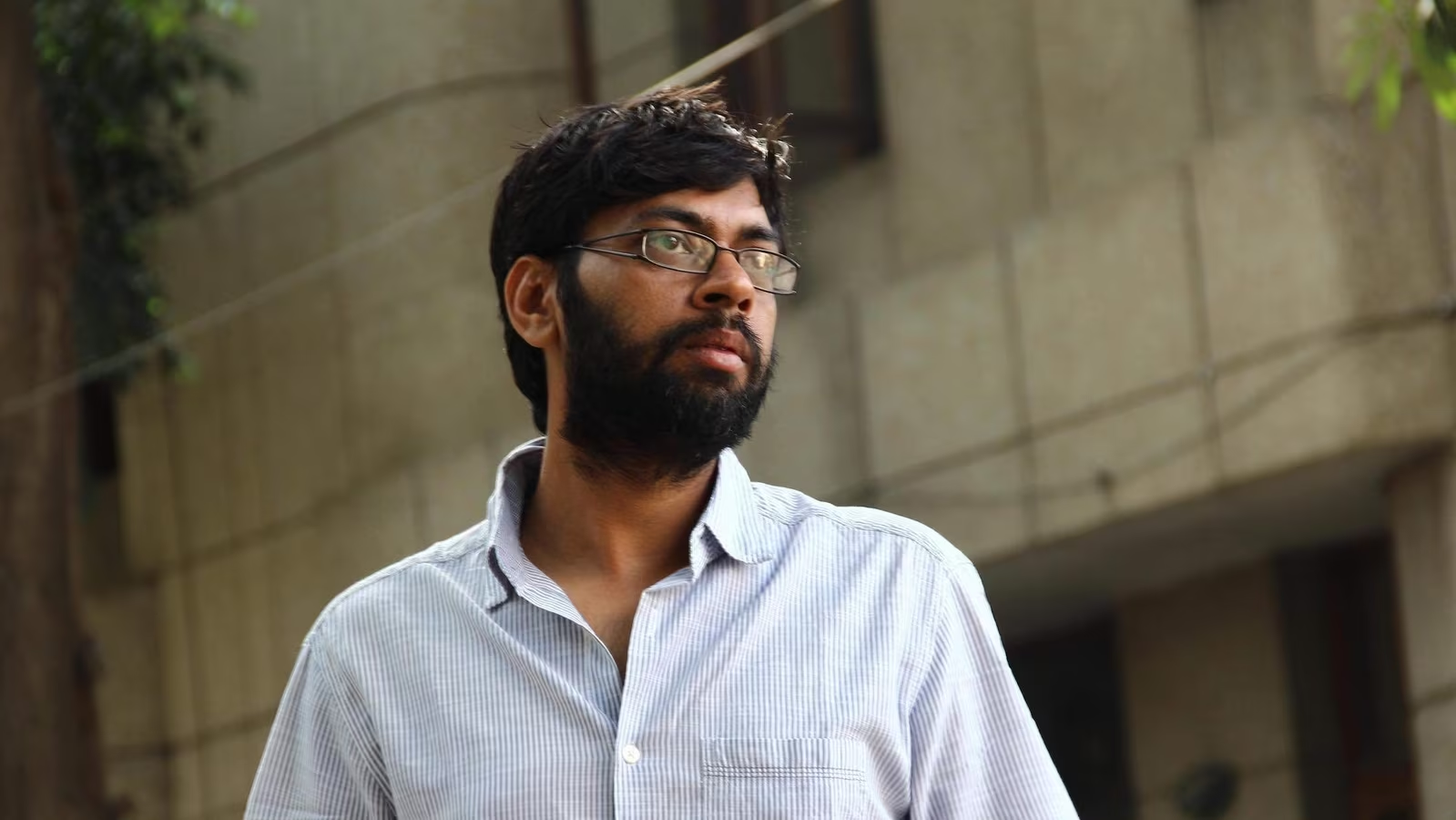


Director Kanu Behl talks about the process of making and casting Agra, and shares why he hopes the film is able to turn the audience's gaze inwards.
30 Oct 2023

Director Kanu Behl talks about the process of making and casting Agra, and shares why he hopes the film is able to turn the audience's gaze inwards.
Kanu Behl is ready with his latest film Agra. Set in the titular city of India, it has nothing to do with the primary reason the place is famous for- the Taj Mahal. Instead, the film positions itself within the interpersonal dynamics of a cramped household located somewhere inside the same city. It is a brutal, uncompromising film which confronts and interrogates a topic like sexual repression. (
Kanu Behl talks about his feature film Agra.
After its World Premiere at the Director's Fortnight at the Cannes Film Festival, Agra is ready to meet its home audience at the Jio MAMI Mumbai Film Festival . In this exclusive chat with Hindustan Times, director Kanu Behl opened up about his film, and the larger conversation pertaining to a certain structural support for art and Cinema to thrive.
We're now on WhatsApp. Click to join.
Congratulations on Agra. It is a difficult film to digest and definitely a conversation starter. Talk to me about why Guru's story is important for you to tell as a filmmaker.
After Titli , I was thinking what was it that I wanted to do next, what was it that I felt strongly about. Then I realized that there was this sexual repression that I had felt personally in my teenage and as a young adult- till about age 25 and 26. I felt like it was not just me. I have seen it around me in a lot of young boys especially in the society that we live in. I started writing around that and researching, and I sensed that there was something that needed to be spoken about. I think that is where the idea first germinated.
The poster of Agra.
Agra premiered at Cannes earlier this year, where it received a rapturous response. Now, it is all set to premiere at the Jio MAMI Mumbai Film Festival. How has this experience been like for you so far? What has been the reaction from the international audience?
It was fabulous. The film was received very well at Cannes. We got a really, really good reaction. We got some really good reviews. The film has been travelling since then. It has been to SXSW, Cologne, and many other film festivals; and the response everywhere has been great so far. It is really nice to discover that film has been connecting with people all across the world. Whatever feedback we are getting, whenever I am at screenings, during the film, when it finishes... normal people, everyday cinema audiences coming out and speaking to you across the film and saying that they have experienced something similar in their own culture. It reinstated my faith that the film has some universal quality, inspite of being so personal. It is connecting with the audiences across the world, so I was very excited with that sort of feedback. And, now I am excited to see how Indian audiences react to it.
I also wanted to bring out how Agra has some committed performances across the board. Talk to me about the casting process.
The casting process was different for all characters. For Priyanka's (Bose) part, I had almost written it for her. Even while I was writing, I had her in mind. We tested other people but eventually what Priyanka was bringing onto thee table was so much more exciting. Given also that there was also going to be a complete transformation for her part. It has going to be a part where no one had seen her, with regards to some of the other parts that she has played. This was going to be a complete departure for her. That was going to be. Priyanka also was excited about the emotional depth of the character, and she completely immersed herself in the part.
Rahul Roy was a joy to work with. We were testing other people also for the part, but I think he cast himself with the sheer dedication he had. I remember coming to me and saying, 'Ye role koi aur nahi karega ye main hi karunga. (No one else will play this part except me)' Inspite of being such a senior actor, he was the hungriest on the film. He used to be the first one on the workshop and the last one to leave.
For Mohit (Agarwal), we tested a lot of people in a lot of different cities, and eventually how deeply immersed he was to play the character, it played a huge part in me casting him as Guru. His physicality also is a major factor. It is such a difficult character and I felt that the actor has to have a certain innocence. They need to be slightly smaller in stature so that they are not dominating the frame. The amount of emotional depth that Mohit was ready to plunge into for the part was unmatched and sealed the deal for me.
Mohit Agarwal and Priyanka Bose in a still from Agra.
In a previous interview, you had mentioned that there is a lack of 'structural support' for a certain kind of film in India. What do you think needs to change in terms of awareness and exposure in this scenario.
It's a much broader conversation, Santanu. Its a socio-political, cultural sort of context that we are in, and a lot of things have to change. I think it is not the matter of the audience's taste or audience's need to watch a film like this. I think that is very much there. The audience has evolved and the last people whose court I would put the ball in on an issue like this are the audiences.
I think its more about the gatekeepers, our political structures, and support for a certain kind of cinema and support for a much larger cultural environment. Support for the arts in general. Not just limited to cinema. I think we need to create those spaces all around us in the world we live in today. For us to be able to move away, the conversation of just the commercial importance of a film has to move towards how cinema has the potential to influence and create awareness, and thus immerse ourselves into the culture of developing the art and cinema all around us. I think that is the viewpoint that needs to shift.
This whole thing of Cinema being content- this new word that is being used, I think that is a very slippery slope. Just shifting our narrative from there and looking at the larger importance of any sort of artform in our lives for us to be able to perceive the world around us in different ways, in a more nuanced way... I think that shift needs to come from the policy makers who hold power.
What do you hope audiences take away after watching Agra?
I am not much for desiring a takeaway. I think it is a journey of a set of characters that is set in a particular time and space. For me, the idea of a film is always to be able to start a conversation. Whether you like it or not. That is the biggest thing I have wanted from this film. To be able to make you stop and look at a point of view that is not often heard. For us to be able to turn our gaze inwards and look at the so-called perpetrator.
It is easy to label a character like Guru, who has done dastardly things, as a perpetrator. But at the end of the day, he is also a human being. I think in a much larger way what he is doing in the film is almost a call for help. It is a call for being heard. It is a call for the people around him to talk as much as he is doing. He does not even have the vocabulary to express what he wants to say. But he is the only one who is atleast saying, 'baat toh karo (atleast talk about it).' Lets have a conversation, about what's going on in this house.
What I am hoping is for people to see this film from the inside, rather than the outside. Not just look at him as a difficult character and 'other' him, and label him as problematic and choose to stay away from him. I really would like if an audience can, however difficult the shoes might be, fill in those shoes and see what that character is feeling. Where its coming from.
Agra premiered at the Jio MAMI Mumbai Film Festival.
Share Article: